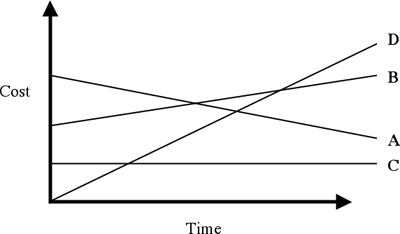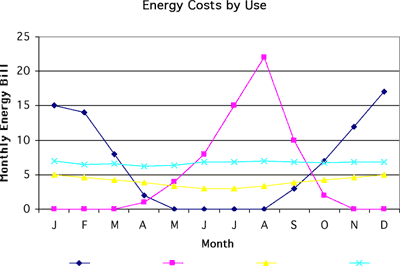| |
|
|
|
Name: _________________________
Date: _________________________
|
| Q1. |
Making your home more energy-efficient will have primarily which of the following environmental benefits? (check one) |
| |
____ Reduce water pollution
____ Help protect endangered species
____ Lower greenhouse-gas emissions
____ Improve the health of forests
____ Increase biodiversity
|
| Q2. |
On average, which is the "cleaner fuel" in terms of emissions of the greenhouse-gas carbon dioxide (CO2)? Natural Gas or
Electricity? (circle one). Why?
|
| Q3. |
If an addition is made to a house that increases its size by 30%, the energy use will go up by about 30%
(True/False). Why?
|
| Q4. |
Longer showers automatically mean more energy use (True/False). Why?
|
| Q5. |
A house's living room originally had 10 identical incandescent light bulbs, and then energy use for lighting was reduced
by 70%. This means that 7 of the bulbs were removed (True/False). Why?
|
| Q6. |
Spending $500 on a new stereo system will have about the same effect on a household budget as spending $500 on adding
insulation to the attic. (True/False). Why?
|
| Q7. |
It's possible to buy a new energy-efficient appliance without increasing the household monthly cost of living
(True/False). Why?
|
| Q8. |
Which of the four curves reflects the investment plus cumulative energy cost of a home before making an
energy-efficiency improvement?: _____ After?: _____ |
| |

|
| Q9. |
Which professional(s) could be employed in the field of energy savings (check all that apply) |
| |
____ Engineer
____ Doctor
____ Architect
____ Economist
____ Athlete
____ Social Scientist
____ City Planner
____ Statistician
____ Energy-Efficiency Specialist
____ None
|
| Q10. |
Match the curves to the likely form of energy (write answers next to legend): |
| |

_______________ lighting
_______________ air conditioning
_______________ appliances
_______________ heating
|
| Q11. |
If a home's most recent energy bill is $1000 per year and a computer model predicts that the bill
is $1200 per year, the model has a 20% error (True/False). Why?
|
| Q12. |
Average energy use for a group of people is a good overall indicator of the group's energy use patterns? (Yes/No). Why?
|




